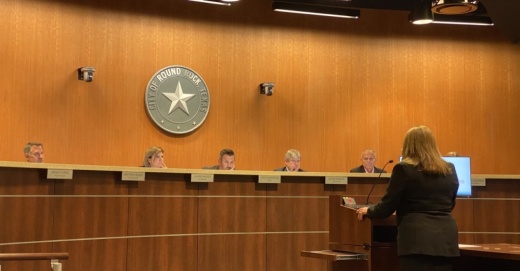The city-proposed tax rate ratified Sept. 9 by Round Rock City Council for fiscal year 2021-22 is $0.397 per $100 of valuation, $0.01 higher than the no-new-revenue rate.
While the proposed tax rate of $0.397 is $0.042 less than the 2020-21 rate of $0.439, it is 2.47% higher than the no-new-revenue rate, $0.387441, the rate which would generate the same amount of revenue as the previous year when considering growth in property values, according to the city. Residential property taxes make up around 19% of the $133 million general fund's projected revenue, or about $25 million. The city's tax rate will also make up 19% of a homeowner's tax bill, which also includes property taxes paid to the school district, county and other taxing entities.
Community Impact Newspaper previously reported this increase, according to Chief Financial Officer Susan Morgan, is enough to fully cover the cost of the city’s road expansion program, but not much beyond that.
The total taxable value in Round Rock increased from $15.36 billion in 2020 to $17.67 billion in 2021, according to certified tax rolls from the Williamson Central Appraisal District, Morgan said in a presentation regarding the budget. Included in that increase is $381 million in new taxable value year over year, Morgan said.
Overall, taxable property within the city is 92% single-family residential. However, when it comes to revenue by source, 55% of property tax revenue comes from this kind of property. The other 45% comes from commercial property, which makes up 8% of taxable property.
Property taxes generated in the city will help fund a $525.4 million proposed budget.
City information states the proposed budget includes an 8% increase in the police budget, bringing it to $37 million, $132.7 million for transportation improvements, and $7.3 million for the extension of the Brushy Creek Regional Trail system.
The proposed budget includes 52 new personnel, which Morgan said are needed to keep up with the city's projected 2.5% growth in population by the end of this year.





